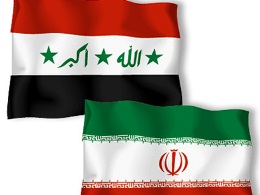 In Iraqís Anbar province, where there is mutiny against Nuri al-Maliki's cabinet, one wonders about the significance of launching a huge war that could have been easily politically finalized by the Iraqi government.
In Iraqís Anbar province, where there is mutiny against Nuri al-Maliki's cabinet, one wonders about the significance of launching a huge war that could have been easily politically finalized by the Iraqi government.There is no oil in Anbar or real strongholds, and it is merely a futile land whose people are angry of the continuous persecution against them by Maliki, who himself could have solved their problems instead of making promises he did not keep. Or in the worst cases, he could have ignored them instead of sending his forces to commit massacres against hundreds of unarmed protesters.
The reason lies within Malikiís intentions. As time passes, it becomes clear that the premier wants to achieve aims that go beyond the public dispute between him and protesters. There is more to the trap than the bird. Maliki wants to appear as the protector of the Shiites by pursuing Sunnis and weakening his Shiite competitors who politically threaten him.
Alliance with Iran
This is why he intentionally eliminated and pursued his Sunni political rivals and ignored his Shiite rivals. On another hand, Maliki is Iran's ally, and he is pushing Iraq towards supporting the Syrian regime. He has allowed the transfer of huge Iranian military aid to Assad through Iraqi air space and land. Some sources confirm that he financially and logistically funded Assad in the previous months and that his forces participated in fighting the rebels along the borders more than once. And currently, he is launching a bigger war that aims to besiege the area that separates and end the Syrian revolution and its supporters along his country's borders and beyond them.
The enthusiasm which reigned over Maliki and made him send his forces to the north western areas cannot be easily understood. This is the second time he has done this since he assumed power.
The first time he made this move was six years ago against Muqtada al-Sadr's militias. The operation was dubbed "Charge of the Knights." Sadr's supporters fought back under the slogan of fighting militias of daawa and Iranian intelligence. Maliki's enthusiasm to shed more blood cannot be understood except within the context of the strong alliance with the Iranian regime.
He is committing a parallel act to what Iran's second agent is doing. Hassan Nasrallah has recruited his militias to fight alongside Assad's forces particularly in Qusayr, Homs suburbs and border areas between Lebanon and Syria to extinguish the revolution in Syria. So, it seems that we are confronting two Tehran allies fighting alongside Assad on the Syrian southeastern and western fronts, which are Lebanon and Iraq.
The success of the Iranian pincer against the Syrian people depends on Assadís ability to stand his ground in Damascus in the upcoming months - which is unlikely as the rebels insistently progress towards the capital from Aleppo and Daraa. This takes us back to the previous question, why is Maliki involving himself in a war that will probably not be in his favor? We have noticed how all of Maliki's speeches bring up the Syrian issue and the fate of the Assad regime.
His statements echo Iranian ones. This implies that he is committed to his Iranian ally in supporting Assad and in sending his forces to disordered Iraqi areas and even to Syrian areas. He, like the Iranians, thinks that the fall of the Assad regime and the establishment of an alternative regime that opposes Iran will represent a war front against him and against Iran and Hezbollah. The Revolutionary Guards in Iran admitted that the fall of Syria is tantamount to the fall of Tehran. In other words, a defeat will herald the gates of hell against the Iranian regime.
A domestic and a foreign revolution will be unleashed against it. Or this is how one of the Revolutionary Guards' leaders makes it appear when he justified massive Iranian military support to save Assadís regime from collapsing.
This article was written by†Abdulrahman Al-Rashed†for†Asharq al-Awsat on April 28, 2013.†Abdulrahman al-Rashed is the General Manager of Al Arabiya News Channel. A veteran and internationally acclaimed journalist, he is a former editor-in-chief of the London-based leading Arab daily Asharq al-Awsat, where he still regularly writes a political column.
The Iran Project is not responsible for the content of quoted articles.










